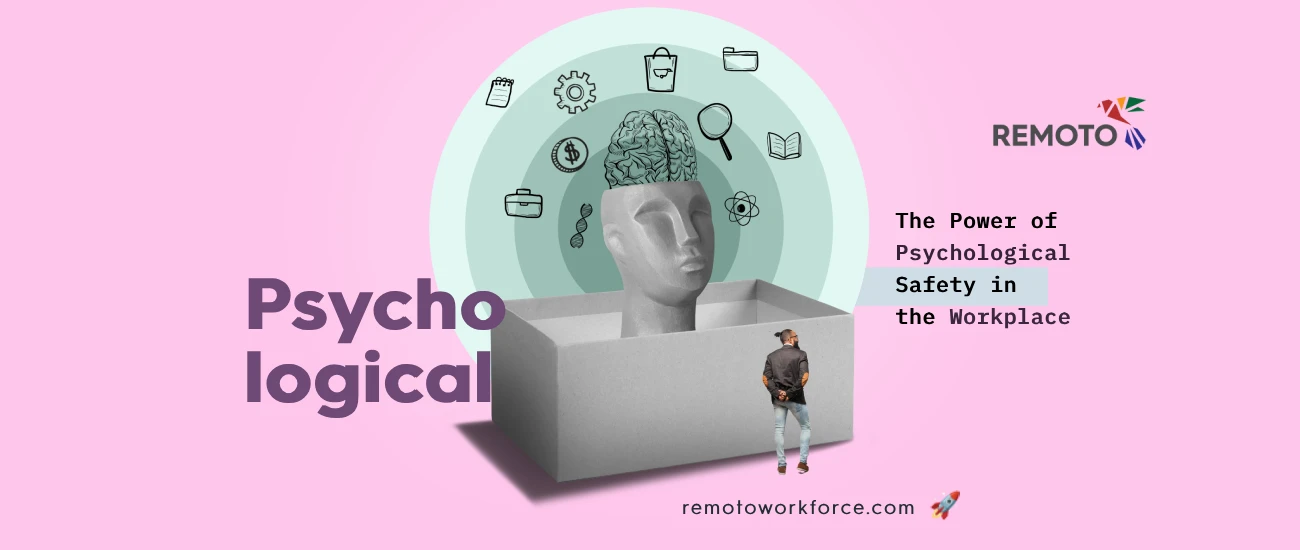In a hybrid and highly collaborative work environment, innovation and productivity depend on more than just technical skills or project timelines. What truly makes teams thrive is their ability to speak up, share ideas, and even make mistakes without the fear of judgment or retribution.
Psychological safety refers to a shared belief that the workplace is safe for interpersonal risk-taking. It means people feel comfortable being themselves, expressing concerns, and challenging the status quo. Today, psychological safety is a core driver of high-performing teams, effective leadership, and long-term organizational success.
In this blog post, we look at how important psychological safety is and how it affects team dynamics. We also give leaders ideas on how to make it more important.
Why Trust Is the Cornerstone of Performance
Trust is more than a soft concept; it’s the glue that binds collaboration and performance. When employees trust that their voices will be heard without retaliation or ridicule, they’re far more likely to contribute meaningful ideas, flag potential risks, and offer feedback. In contrast, a culture of fear or silence can stall innovation, breed disengagement, and drive top talent away.
Psychological safety fosters the kind of trust that fuels team resilience. It allows for candid conversations about failures and missteps, not as punishable offenses but as learning opportunities. This openness accelerates growth at both the individual and organizational level.
Trust is built by encouraging humanity. When people feel safe, they speak up. When they speak up, teams evolve. And when teams evolve, performance skyrockets.
Innovation Thrives Where Fear Doesn’t
Innovation demands risk. It requires people to step into the unknown, propose new ways of doing things, and occasionally fall flat. But in an environment where mistakes are punished or ridiculed, who would dare raise a bold idea?
Psychological safety creates a sandbox for experimentation. It’s the psychological equivalent of a safety net, providing enough support for people to leap into creativity without the fear of falling too hard.
By cultivating psychological safety, you can develop a culture where innovation is everyone’s responsibility. That kind of empowerment leads to breakthrough thinking, agile problem-solving, and a competitive edge.
Diversity, Inclusion, and the Role of Psychological Safety
Diversity efforts often focus on who gets hired, but inclusion is about who gets heard. Psychological safety is the missing link that ensures every voice, regardless of background, experience, or rank—, has a seat at the table.
Without psychological safety, marginalized employees may self-censor, withholding perspectives that could enrich conversations and lead to better business outcomes. This silent exclusion undermines even the best recruitment strategies.
But when teams feel safe, individuals from underrepresented groups are more likely to speak openly, challenge biases, and influence decisions. Psychological safety is what makes diversity work. It transforms representation into participation and inclusion into impact.
Leadership Starts with Listening
Leaders play a pivotal role in creating a culture of psychological safety. In fact, this concept is related to actively inviting feedback, admitting when you’re wrong, and modeling vulnerability.
When leaders show that it’s okay to not have all the answers, they create space for team members to step up. This humility fosters a culture of shared ownership and collective learning. It also builds credibility, because nothing earns respect faster than authenticity.
Simple actions like asking for feedback, praising effort over outcome, or responding calmly to mistakes can drastically increase psychological safety. And the ripple effects? Higher retention, greater engagement, and a team that’s more united than ever.
Building a Culture Where People Feel Safe to Shine
Creating psychological safety is an ongoing practice. It requires intentional communication, empathetic leadership, and a genuine commitment to growth.
Start by establishing clear norms for respectful dialogue. Encourage teams to celebrate wins and reflect on losses. Make one-on-one meetings safe spaces for honest conversations, not just status updates. And most importantly, reward courage—whether it’s speaking up in a meeting, offering critical feedback, or admitting a mistake.
Safety Fuels Success
Psychological safety is crucial for companies. It’s what transforms groups of people into cohesive, confident teams. It’s what helps businesses adapt, grow, and lead. So whether you’re a team leader, a hiring manager, or a CEO, the question is no longer if you should prioritize psychological safety, but how soon you can begin.
Because when people feel safe, great things happen. And in that kind of workplace, everyone wins.














